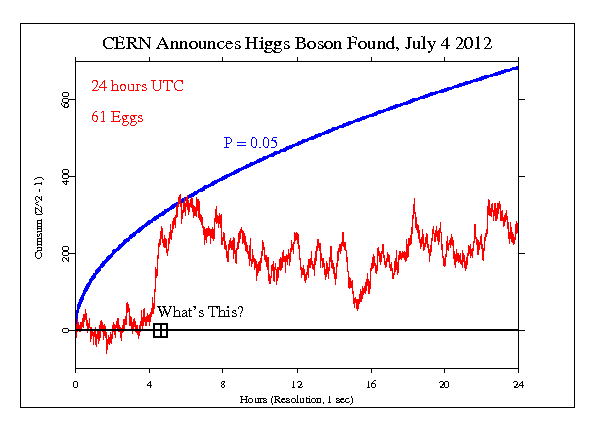|
I received a question about the effect of CERNs announcement of the
Higgs Boson via Twitter. No details, but the tweeter proposed looking at
the 4th July 2012. This is long retrospective, and too loose for a
formal even anyway, but out of curiosity I did the analysis for the full
UTC day. It has a modest positive trend, and a nice "spike" of high
correlation around 4 am UTC. Not interpretable, of course, but sorta
cool.
Note that this day is also the biggest patriotic holiday in the US,
the 4th of July,
celebrated with picnics, fireworks, and gusto all over the country. This
case is an example of why precise timing is necessary to separate one
event from the plethora that will occur close in time, likely
overlapping the event of interest. In the long run, sharp focus will
segregate the identified test cases while possible effects from
not-quite synchronized events will wash out.

It is important to keep in mind that we have only a tiny
statistical effect, so that it is always hard to distinguish
signal from noise. This means that every "success" might be
largely driven by chance, and every "null" might include a real
signal overwhelmed by noise. In the long run, a real effect can
be identified only by patiently accumulating replications of
similar analyses.
|